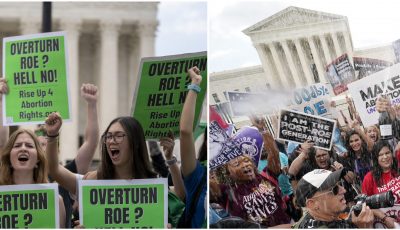Madero makes case for territorial equality to Supreme Court
In June, President Joe Biden made news when he promised residents of U.S. territories that “there can be no second-class citizens in the United States of America” on the same day his Department of Justice filed a brief before the Supreme Court in United States v. Vaello Madero arguing that otherwise eligible citizens can be denied Supplemental Security Income simply because they happen to live in Puerto Rico or other U.S. territories. Yesterday, Vaello Madero—who was stripped of his SSI benefits after moving from New York to Puerto Rico—filed a powerful response that the continuing denial of SSI benefits is not just unconstitutional, but would represent a dangerous continuation of the Insular Cases’ doctrine of “separate and unequal” status for residents of U.S. territories. Last year a unanimous panel of the First Circuit upheld a district court ruling that the continued denial of SSI benefits in Puerto Rico was unconstitutional.
“Mr. Vaello Madero makes a compelling case that the continuing denial of SSI in Puerto Rico and other territories simply cannot be squared with the Constitution’s guarantee of equal protection,” said Neil Weare, president and founder of Equally American, which supports equality for the 3.5 million citizens living in U.S. territories—98% of whom are racial or ethnic minorities. “This historic case will once again provide the Supreme Court the choice to either turn the page on continued discrimination against citizens in the territories who remain politically disenfranchised or continue the dark legacy of the Insular Cases.”
The Insular Cases are a series of racist early-1900s decisions decided shortly after Plessy v. Ferguson that all three branches of the federal government have relied on to support continued inequality in U.S. territories. Last year the Supreme Court narrowed and criticized the Insular Cases, but stopped short of overruling them. The U.S. House of Representatives is currently considering a resolution that condemns any continued reliance on the Insular Cases. Biden and his Justice Department have yet to make their position on the Insular Cases known.
“All three branches of the federal government should expressly condemn any continued reliance on the Insular Cases to defend inequality in U.S. territories,” Weare said. “It’s time the Insular Cases be placed in the dustbin of history alongside Plessy and Korematsu where they belong.”
Next week Equally American plans to file an amicus brief in support of Madero’s case, along with a number of other national civil rights organizations. The United States has until Sept. 29, 2021, to reply to Madero and the scores of amicus briefs expected in the case. Oral argument is not yet scheduled, but will likely be in December or January.
Madero is represented pro bono by a team at Curtis, Mallet-Prevost, Colt & Mosle LLP. (PR)



























